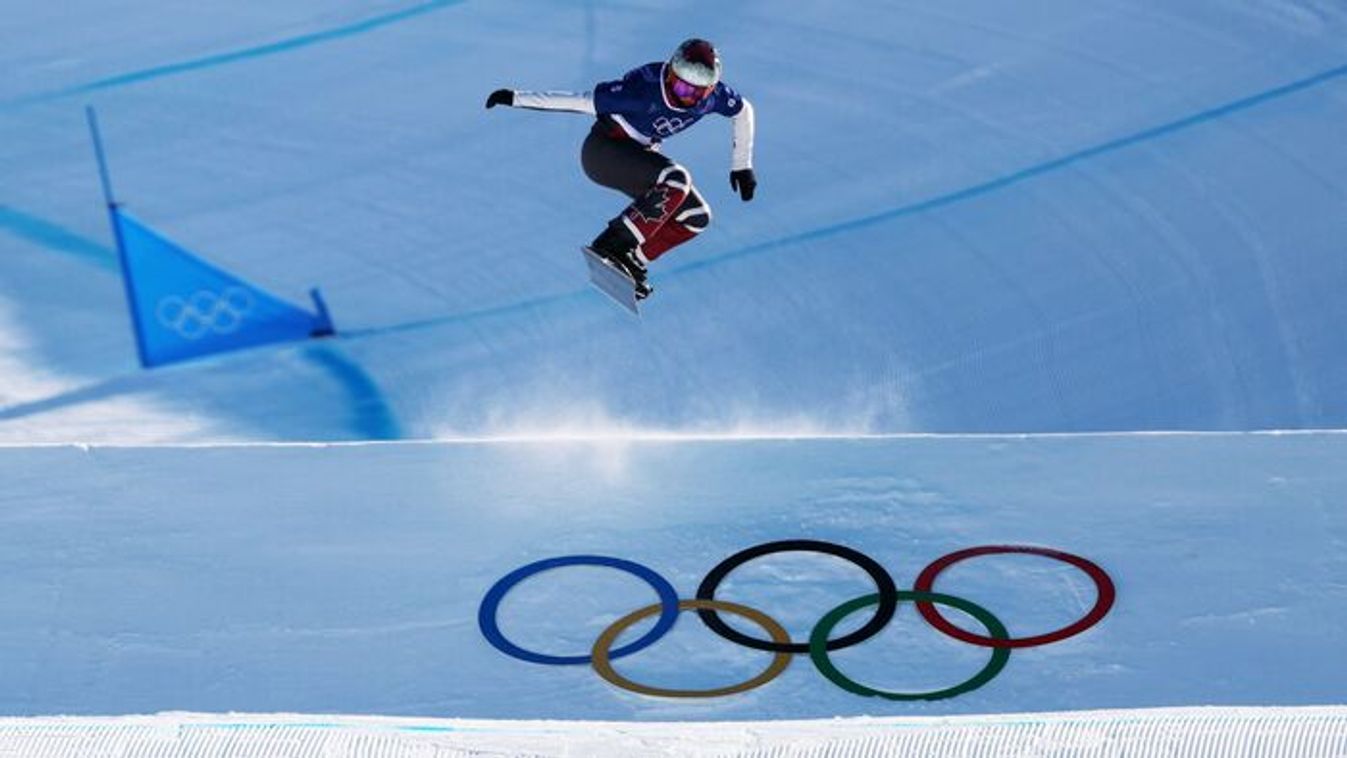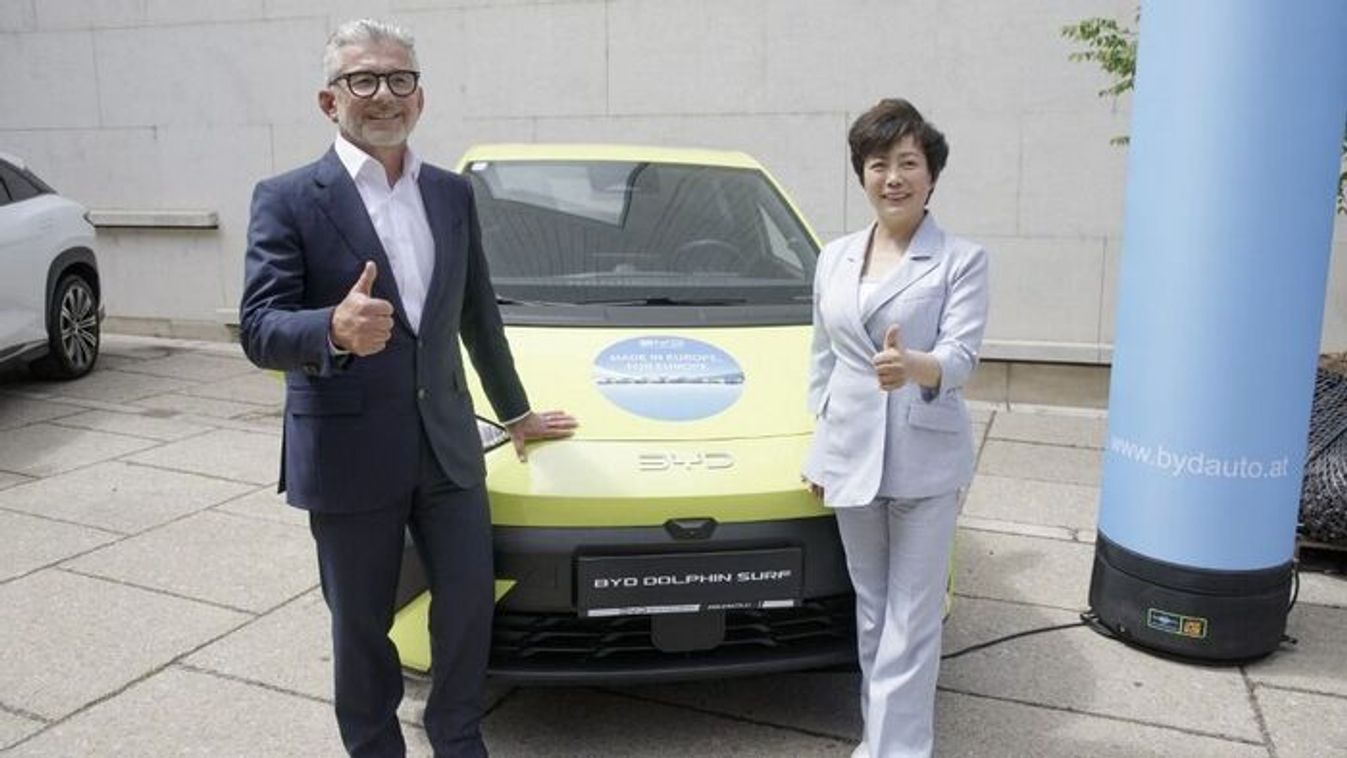Trade and investment is what Africa needs from Europe, rather than teaching – star economist says
African economies are amazing the world, near half of them will grow by more then 5 percent this year according to the African Development Bank's recent projection. The continent indeed offers huge opportunities to those European countries and investors who move early, are ready to forget the moral high grounds and the outdated image that what Africa needs is aid, and to leave their comfort zone seeking partners for trade and investment in Africa – Moroccan economist Abdelmalek Alaoui , CEO of the consulting firm Guepard Group and head of Moroccan Institute of Strategic Intelligence told Világgazdaság on the sidelines of a lecture in Budapest organized by the Mathias Corvinus Collegium. Forget the EU-Africa levels, patriots will get the upper hand – he recommended.
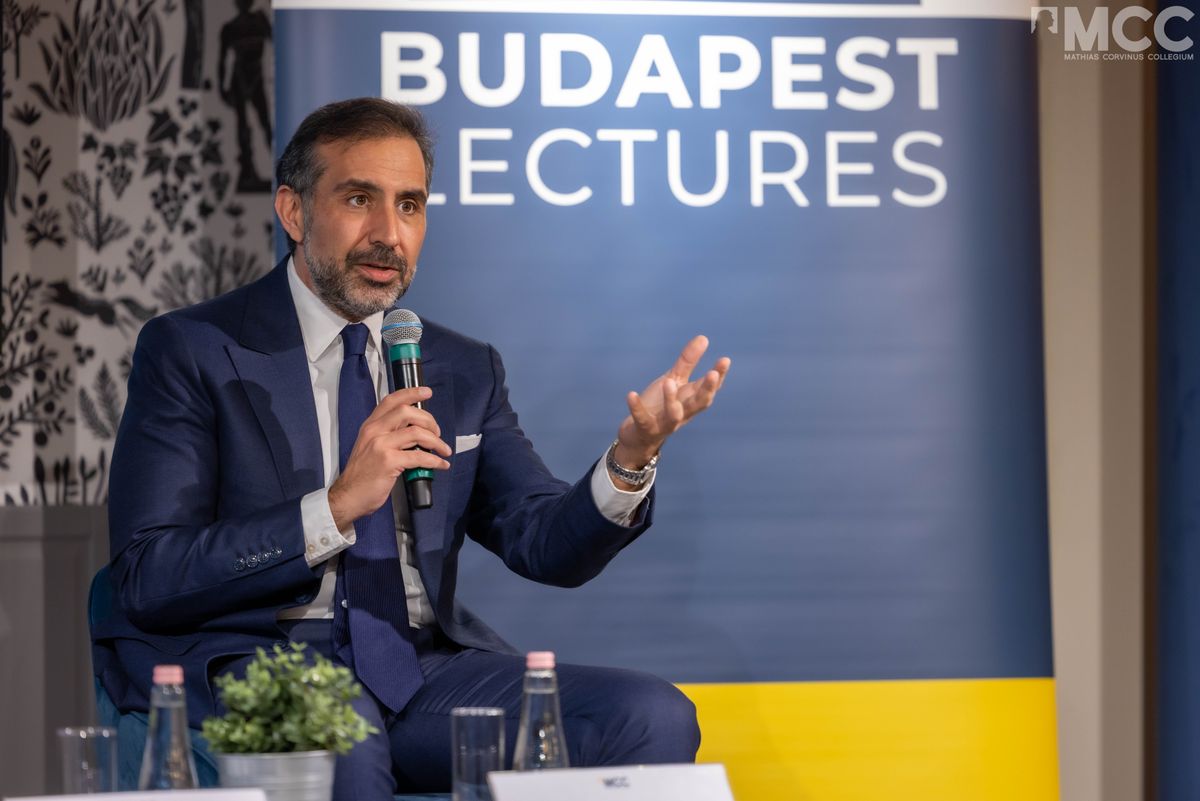
VG: In our fast-changing world, will the USA, China, and the EU compete for business in Africa?
AA: Africa has always been a place where you had proxy economic wars. When we had the world split between East and West, Africa was one of the lands where the United States and the Soviet Union were having great, great, great economic rivalry. You would see countries like Algeria, Angola that were close to the Soviet Union. And you will see a block of countries that is much more closer to liberalized countries. In the case of Hungary, for example, you will see stadiums in Algeria that were built by Hungarian companies because simply it was in the dynamics.
So the dynamics have not changed a lot. In a very much polarized world and the battle between East and West and Europe, Africa is one of the big economic battlegrounds. Why? Because it's one of the rare continents where you can achieve fast growth. You have a lot to build, and dynamic markets, where you can get two-digit growth. And where the cost of risk is easier and easier to evaluate over the years, because Africa is modernizing. And it has now a consistent, I would say, middle-class economy. A middle-class that is rising, that will reach 500 to 600 million people.
So for the U.S., the strategy is pretty clear. Their strategy is: do not let China alone in Africa. They are not that aggressive commercially, but they are trying to prevent China from gaining too much of a position. In extractive industries, rare minerals, everything you would need to create a smartphone or fund a new economy. To any sources of cheap energy that would allow to fund servers or to fund whatever the net economy needs as a growth engine.
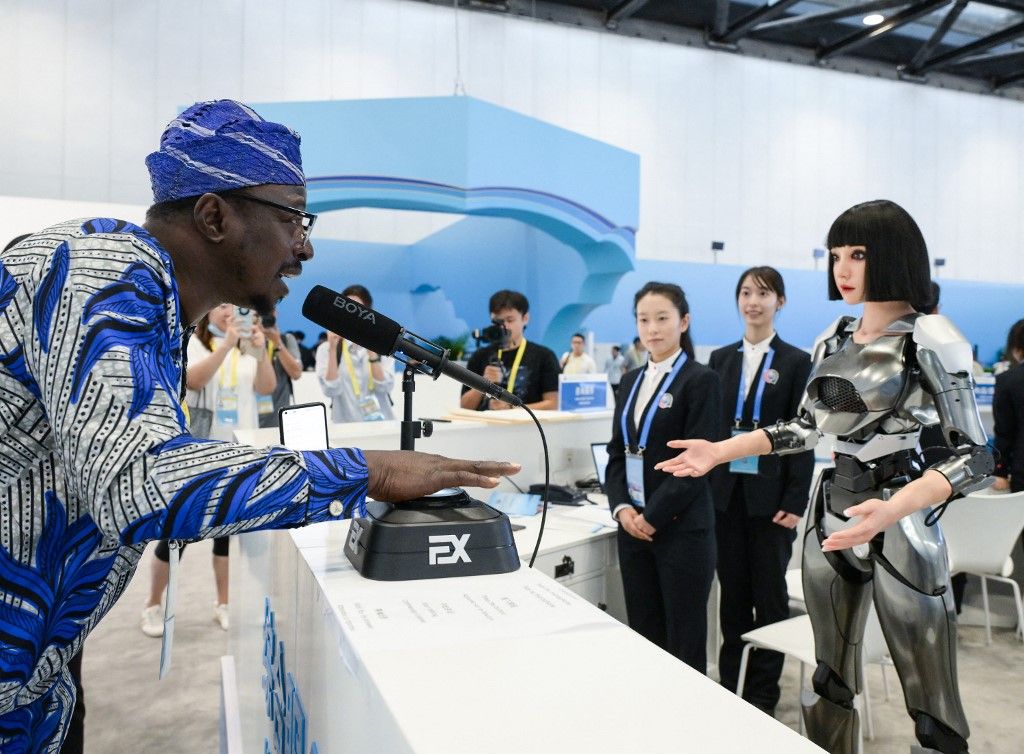
Double standards from the moral high ground instead of what Africa needs
Well, when it comes to Europe... I used to say, it's like a very dysfunctional relationship.
Dysfunctional?
Yes. Because you have former colonial powers, such as France or the U. K., that still have privileged relationships with a lot of countries and want to keep these privileges. We as Africans are pretty much like the Hungarians: Europe keeps giving us unsolicited advice. We didn't ask for their advice. We're pretty much taking care of our situation. But Europe keeps giving us orders about how we should manage our own democracies, our own governments, our budget. Whereas Europe itself is not able to manage itself.
So that's the crazy double standard that we are facing.
Because we have to deal with actors that is giving us a lot of advice based on moral grounds. While we see that Europeans themselves are not that moral. They are pursuing their vital interests.
They want access to strategic minerals. They want access to oil. They want access to gas. They want access for a cheaper cost. And they are not giving us in return what we are expecting. Which would be high levels of investments. Investments in industries that are not only based on labor costs but also based on innovation.
And at the same time, they ask us to control migration. Which simply doesn't work.
Because if you don't invest in a zone that is sending migrants to create prosperity and to create a middle class, how do you expect this zone to be your shield from illegal migration?
One of the double standards that we receive from Europe, and that is just crazy when you see it from Africa, is that they are asking us to become the champions of ecological transition. Whereas we only contribute 1. 5 or 2 percent to global pollution. But they want us to decarbonate. Whereas we have to put our money in the fields that are more strategic for us, such as education.
Give Africa trade, not aid as USAID is over
If we look at the rivalries in Africa, are the Chinese winning?
The Chinese are working very closely with governments. They are providing good financing, and they are using that to favor those companies. And they do it mainly in the primary sector, in extractive industries: in oil, in access to strategic minerals.
The Americans have a very much larger agenda. And sometimes they use NGOs or other proxy organizations to push that agenda that they have.
But now this has ended, right? No more USAID.
Yes. But, you know, right now, the question of USAID also points to the issue of consistency. Because for years, Africa has been trying to reverse the paradigm of aid. And it's trying to push for a programme where there is trade, and not aid. Because you have the equivalent of ten Marshall Plans of money that was sent to Africa. But simply, it doesn't work. Because Africa is not Europe.
Europe, when it received the Marshall Plan, already had the first industrial revolution. They already had an industrial base, and nations that were empires, and had this broad economic base in order to build on. But in Africa, everything was to be built after the independence. Because the colonial powers only used Africa as a place where they got raw materials, to send them back to their home countries, and then to build. And even if you look at the maps of Africa, the only places that were very much developed are coastal areas near to a port. Also, Africa is twice the size of Europe and it has much less infrastructure.
Europe got stuck, being unable to close an era
About rivalries, and strategies: Americans are doing what Americans know best; they're using diplomacy. They're using their hard power. The Chinese are doing it the Chinese way. Africa is in the Belt and Road Initiative. But they are also trying to get to sustained access to strategic minerals, also to telecommunications, to build roads, and also to build ports. Big, big projects. And Europeans are somewhere in between, just trying to find their way. Because they're hesitating between the end of an era and a this-age system, and trying to get a partnership that still doesn't have two partners.
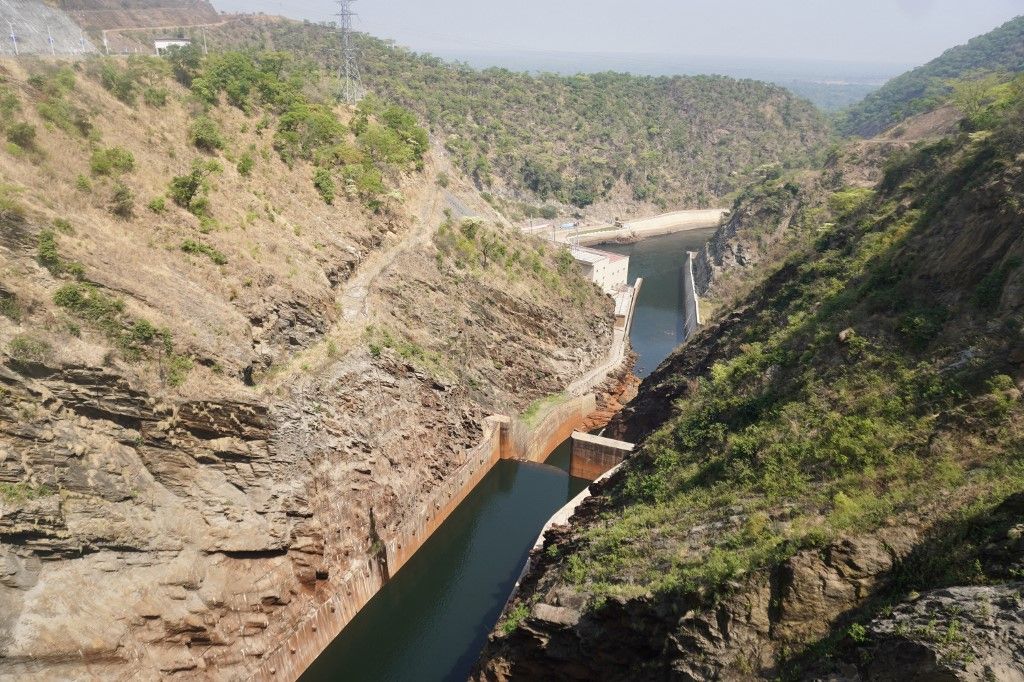
Do you think Europe still stands any chance, while the two big boys are there, China and the USA?
Well, my conviction is that what's happening when it comes to the relationship between Europe and Africa will follow what's happening within Europe. Which means that we will have more of bilateral agreements between countries that really have strategic interests with Africa, rather than a global deal with Europe. Because as for Europe, as Henry Kissinger said: you need a phone number to have a partner. And Europe is having competing interests inside. So if it's not consistent inside, how can it be consistent outside?
Paralel with Hungary: meddling with internal affairs
So I think it's pretty interesting to have this conversation especially here in Hungary, where we can see all the existing discrepancies. In the way Budapest is handling its relationships with Europe, there are competing agendas and different expectations and attitude from Brussels that is seen as meddling with internal affairs. And a moral posture coming from Europe, like that they want to harmonize the systems that they have within Europe.
You mentioned bilateral agreements: do you have any major development in sight?
The main issue right now is how they can leverage the exceptional position and assets of Africa when it comes to renewable energies. European countries are eyeing Africa, and especially the Sahelian region. For very simple reasons: you get 3,000 hours of sun exposure per year there. If you install a solar panel in the south of Morocco, you get four times whatever return you're getting in Budapest. You have big red tape when it comes to installing either wind power or energy power. In Africa, it's much easier. You have more land allocation, less NGOs, less people who don't want to see solar panels or windmills in front of their houses.
- So I think the main idea is that large investors from Europe are looking at how to use energy produced in Africa and then send it by cable to Europe to be able to finance part of the ecological transition. That's number one.
- The second is naturally the hospitality business and tourism for European countries.
- The third one is everything related to technology. Technology is a big disruptor. Because you can be a totally unknown player, and build a totally new digital economy in just a few years. So, countries that have a big offering when it comes to the digital economy can also thrive in Africa.
- And of course, everything that is related to infrastructure. In just my country, Morocco, we are hosting the World Cup in 2030 (VG: with co-hosts Portugal and Spain). Morocco will invest more than 15 billion dollars into building stadium.
Do you have anything specific in mind about Hungary?
I think there is a huge opportunity. Because Hungary is small when it comes to geography and population – but it's really huge when it comes to its universal legacy, its heritage and its culture. Morocco is approximately the same. We are a very ancient country; more than a thousand years old. One of the most ancient executive monarchies in the world. And we both have a conflict between, I would say the formal frontiers that we have for the state, and the immaterial frontiers that our nation and people believe we are within.
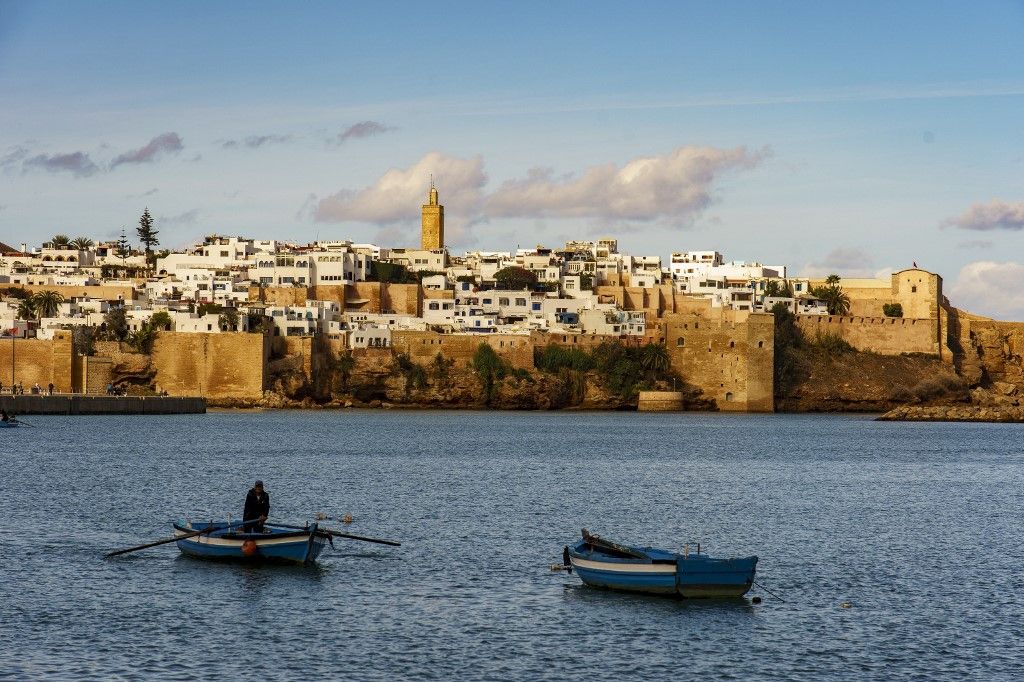
Ideal direction for Hungary to diversify its economic risks
The two countries can cooperate in lots of areas. I think it's difficult for Hungarian businessmen to go to Africa, because if they leave the natural geographical zone that they understand very well, they feel like they're taking a big risk. But in fact, this (Africa) is where growth is happening.
This is also very important for a country like Hungary. Because it needs to mitigate its risk. It's very much exposed to foreign direct investment from China. It is exposed to the decline of industrial investments from Germany. So it needs to diversify its broad economic zone. And it's better to do it in a place where you have macroeconomic and institutional stability, such as Morocco. Because you can push your investments and you can get the right return on investment.
Early movers can benefit, new alliances will be forged
What are the European Union's chances to secure strategic minerals in Africa, while both China and the United States also want them?
There will be a benefit for early movers who will go to Africa in order to try to secure some of the strategic minerals. As mentioned, the United States has secured resources with President Zelenskyy very recently. The Chinese don't need to secure this kind of a deal because they have access to strategic minerals in China, and also in Congo, and some African countries. I think that we will come to an era where you will have to build alliances, because if you are too small, you cannot go for huge markets; and if you don't have a good mining track record, as some of the largest mining companies are not from Europe. They are from Australia or from Canada, countries that already have a soil where you can get some of the minerals.
Some alliances could emerge. And I think we should not underestimate the capacity for innovation either. There will be frugal technologies that will need less and less minerals. We have just seen how DeepSeek entered the (AI technology) market and disrupted it. I think Europe should capitalize on what it does best. They have very good PhDs, very good researchers and a lot of innovation. The situation will evolve critically.
My personal conviction is, that out of most of the countries, where European countries and especially middle powers should prioritize, Morocco is one of the best. Because we are a country with a plan, we have a king with a vision and we have long-term stewardship of our economy.
Forget the EU-Africa level, patriotism is rightly on the rise
Do you think something could be agreed on the EU-Africa level, like on strategic minerals, or only bilateral agreements make sense?
I don’t really believe in EU-Africa levels. You know, you are European, but first of all you're Hungarian. And we as Africans? We only become Africans after the quarter finals of the (soccer) World Cup. We have strong national identities.
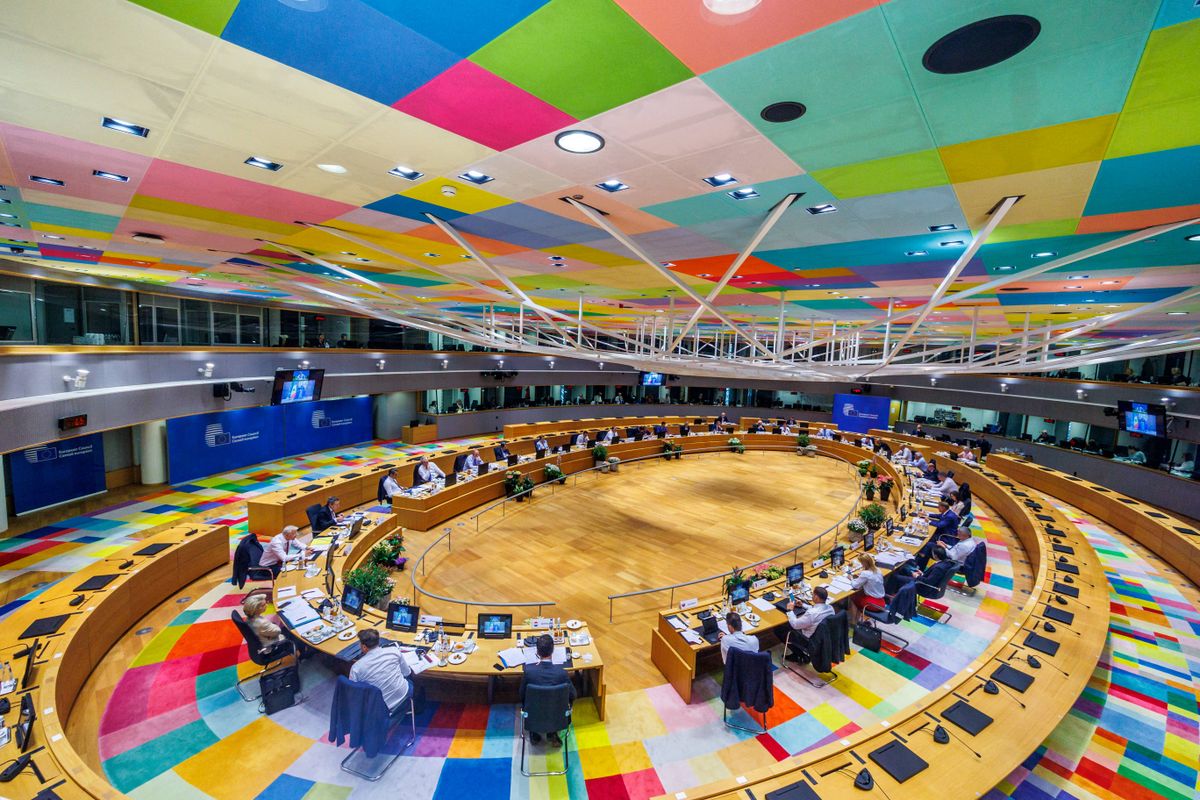
French writer Romain Gary said: to be a patriot is to love your country, to be a nationalist is to hate all the others. I think that right now we have a rise of patriotism. I have much more faith in active bilateralism than big MoUs signed between two continents. Because you have too much of heterogeneous agendas inside each continent.





